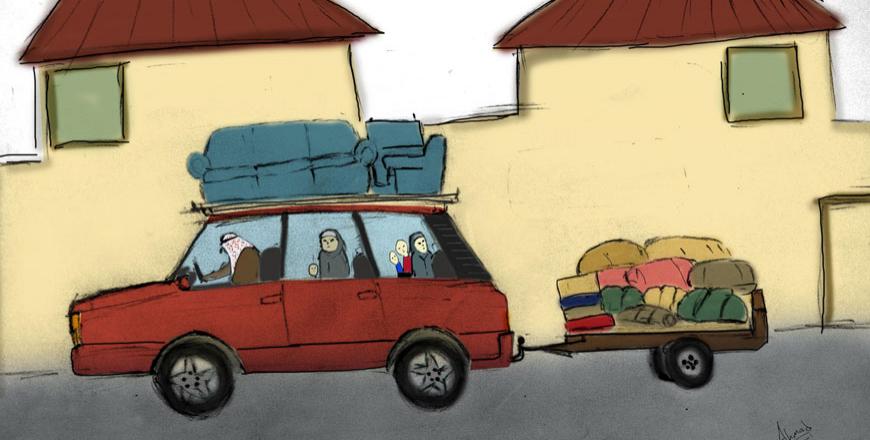You are here
Cabinet amends law to limit scope of ‘tribal justice system’
By JT - Sep 01,2016 - Last updated at Sep 01,2016
AMMAN — The Cabinet on Thursday approved a draft law amending the 2016 Crime Prevention Law, which targeted provisions governing controversial tribal customs like jalwa (forced relocation), diyeh (blood money) and administrative governors' authorities related to these affairs.
The law will be sent to the next Lower House, which will convene after the September 20 elections, for endorsement as stipulated in the Constitution, the Jordan News Agency, Petra, reported.
"Jalwa", a term first coined by tribes, entails the forced relocation of a clan if one of its members murders someone or commits other serious crimes like rape, in a bid to avoid friction between the two tribes, both of the victim’s and the murderer’s, if they were living in the same area.
Interior Minister Salameh Hammad has recently held several meetings with tribal and religious leaders, along with jurists, from across the Kingdom.
The figures reached an understanding that regulates tribal customs and norms and limits tribal cases that fall under the Crime Prevention Law to homicide, honour and cases when members of the tribes involved in the dispute do not honour pledges made on their behalf by mediators.
Under the amending law, jalwa should be limited to the murderer, his father and sons, and for a period not exceeding one year, with the possibility of renewing it if deemed necessary by the concerned administrative governor. The proposed version of the law also stipulates that jalwa should be made from one district to another within the same governorate.
The law also tasks the chief Islamic justice with deciding the value of diyeh in murder cases that end with reconciliation, and levies on those parties in tribal disputes who dishonour pledges made by mediators to pay mediators, or guarantors of the deals made, a fine of no less than JD50,000 in compensation for the damage caused to their reputation.
The administrative governor, according to the amendments, has the power to oversee all the tribal procedures included in this law, Petra added.
The amendments aim at regulating tribal customs and norms related to conflicts and cases of jalwa, atwah (a tribal agreement that functions as a temporary conciliation between conflicting parties until the civic law decides on the case) and diyeh, according to Petra.
The law is meant to avoid exaggerated practices that may cause social problems as a result of relocating families away from their places of residence, which normally results in damage to innocent families’ members, who might lose their jobs, education opportunities or businesses.
Related Articles
AMMAN — Tribal leaders and experts commended the Cabinet's approval on Thursday of a draft law amending the 2016 Crime Prevention Law, the J
AMMAN — Forced relocation is likely the fate of entire Jordanian families belonging to a tribe if a relative kills a person from another tri
AMMAN — A meeting will be held soon with the participation of specialists in the tribal, legal and Sharia (Islamic law) affairs from various

















